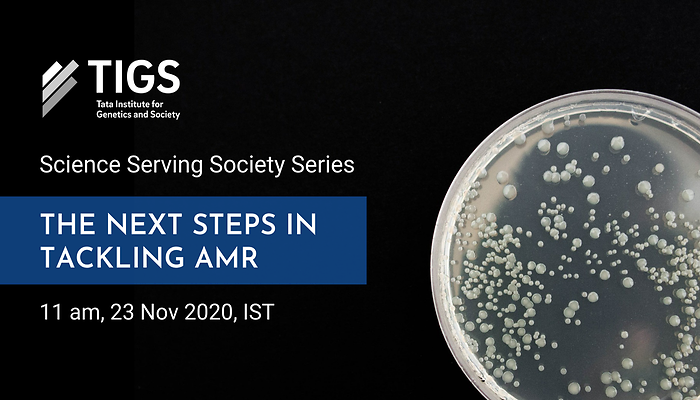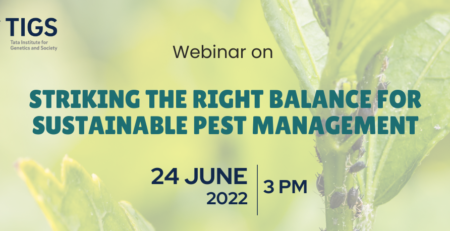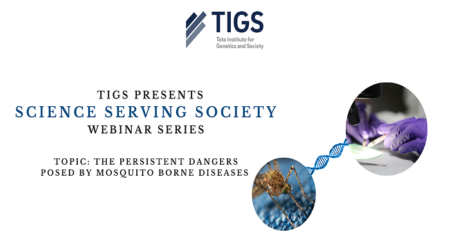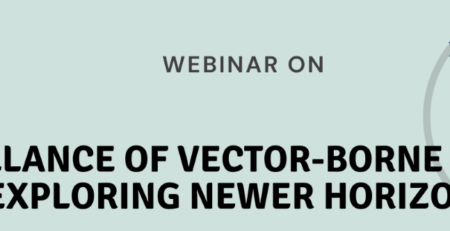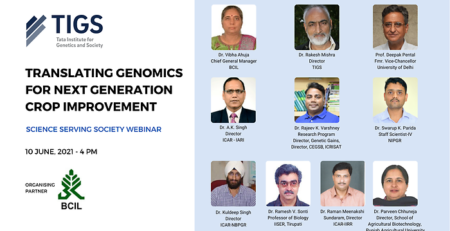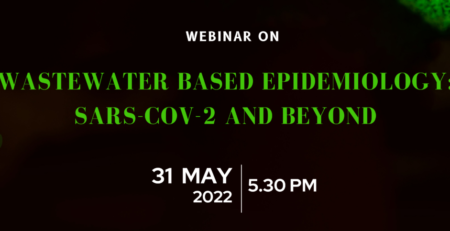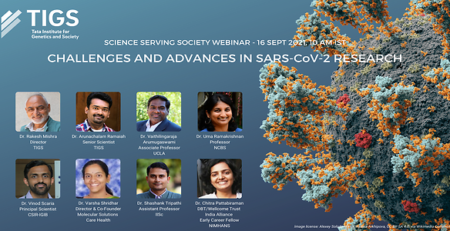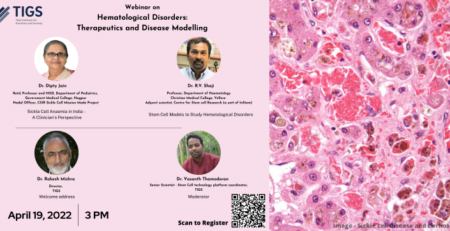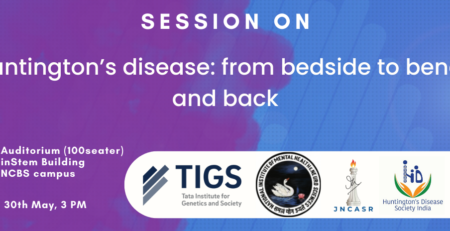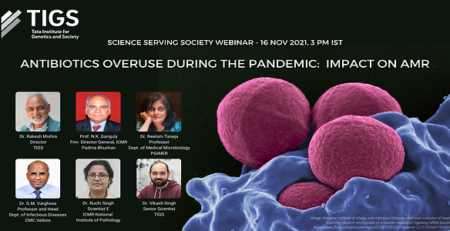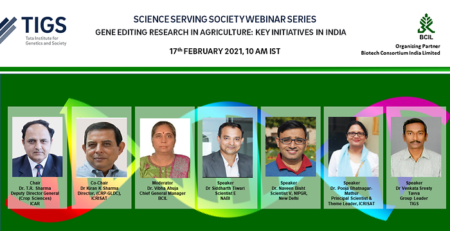Webinar recording
Highlights
The third webinar under the ‘Science Serving Society’ series was held on 23 November 2020 during World Antimicrobial Awareness Week (WAAW), which is observed to create awareness about a growing threat that could very well emerge as the next pandemic if left unchecked. TIGS invited a panel of experts to share their wealth of knowledge on antimicrobial resistance (AMR) and its implications in the present and future of public health.


Dr Bipin Nair, the moderator for the event, initiated the conversation with a look back to the year 1928, when Alexander Fleming first discovered penicillin. Fleming predicted that use of non-lethal doses of penicillin to cure infections could lead to drug resistance. But by the end of 1945, companies in the US were making ~650 billion units of penicillin a month. Dr Nair talked about how Dr Fleming’s dire prediction has come true in the present, with the World Health Organization declaring AMR as one of the greatest emerging threats of the 21st century. He then introduced and invited the first speaker for the event – Dr Balaji Veeraraghavan.
Dr Balaji spoke about AMR trends in India, focusing on the magnitude of the problem and predictions for the future. He touched upon key aspects such as the reasons for the rise in AMR, the principles of drug resistance, ESKAPE pathogens, global data on the rise of AMR and India’s susceptibility profile. He also briefly discussed possible future scenarios involving AMR in India as well as other countries and the role of new antimicrobial agents and combination therapy in tackling drug resistance. His talk highlighted the urgency of taking comprehensive measures to tackle AMR.


Dr Kamini Walia spoke next about the measures currently being advocated by public health institutions and governments globally to reduce AMR, and the progress they have made so far. Dr Walia also spoke about the challenges that need to be overcome at national and international levels through cohesive action, good governance of AMR policies, and access to adequate resources and guidance.


The next speaker, Dr Taslimarif Saiyed focused on Indian innovations and efforts attempting to tackle AMR. Dr Saiyed spoke at length about innovative solutions being developed by organizations incubated at C-CAMP in the areas of AMR prevention and diagnostics. He concluded his talk by saying that building indigenous solutions is the need of the hour to address India’s specific AMR challenges.


A short Q&A session followed, with questions ranging from how we can encourage the use of narrow-spectrum antibiotics through policy and practice, to updates regarding the development of therapeutic nanoparticles. While addressing these questions, the panelists also shed light on new technologies, implementation of good governance and policies, the COVID-19 setback and the way forward in tackling AMR.

